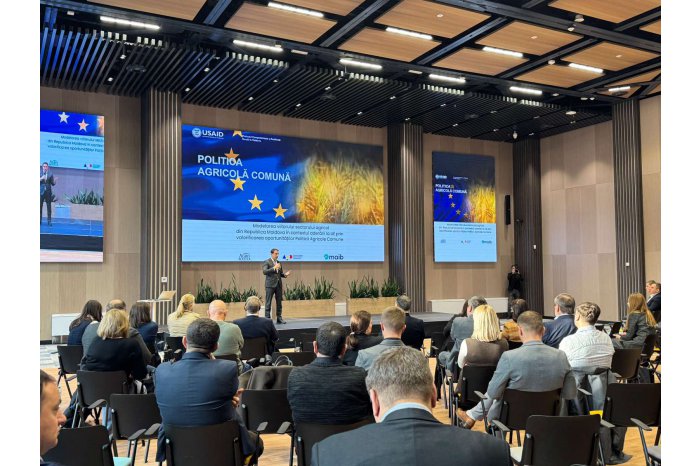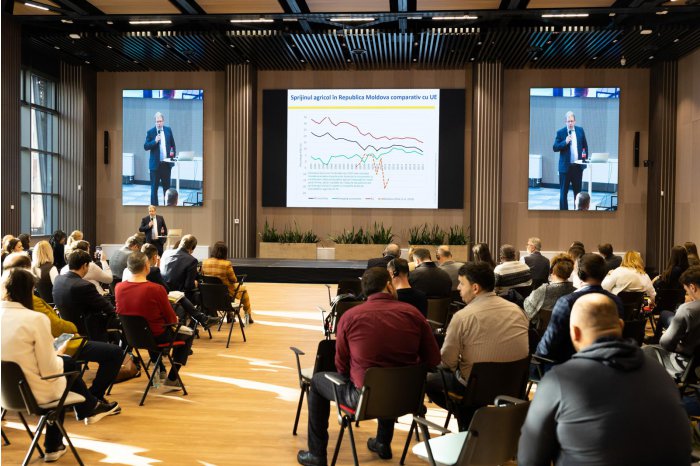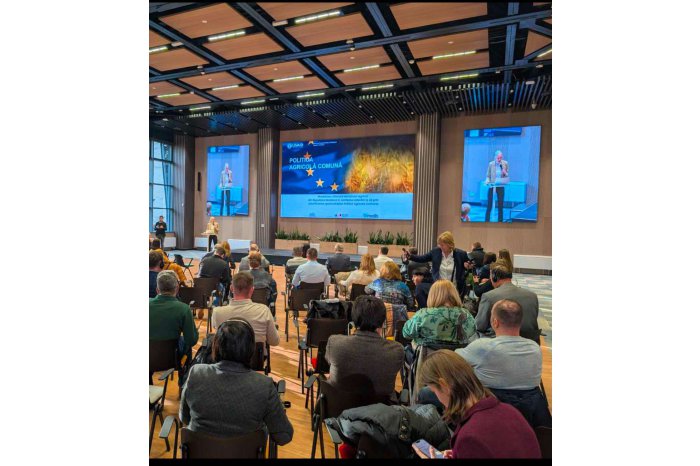Moldovan agriculture ministry makes progress in adjusting framework of branch policies to challenges of EU acquis
22:42 | 02.12.2024 Category: Accession to EU
Chisinau, 3 December /MOLDPRES/ - The perspectives of accession to the European Union give agricultural producers access to a single market of more than 500,000 consumers and to a substantial share of the European funds, meant for the backing of the agricultural sector and rural development from Moldova. To benefit from the getting of the funds from EU’s budget, Moldova must adjust the national framework of policies and institutional one to the Common Agricultural Policy (CAP).
The implementation of the EU’s Common Agricultural Policy implies also a string of challenges. A good deal of the EU’s acquis strictly approaches the safety of food products and fodder for animals; phytosanitary standards; as well as requirements of animals’ well-being and the environmental one.
The Rural Competitiveness and Resilience Activity in Moldova Project (RCRA) of the United States Agency for International Development (USAID) in late last November organized a conference on the Common Agricultural Policy for producers, exporters, providers of services from the horticultural sector, vine growing, wine-making and apicultural sector. The participants in the meeting discussed the enhancement of the agricultural sector’s competitiveness, in the context of the accession to EU and the integration of Moldovan products on the EU’s single market.
„For the agricultural sector, the Common Agricultural Policy, as well as the new policy of subsidizing the development of the agricultural sector and of the rural environment of Moldova will mark the trajectory of the development of the agricultural sector of Moldova for the next years, as well as for the long term. Thus, the way we will embrace the transformations and reforms which will take place in the agricultural sector with the implementation of these documents of policies will condition the capacity of the agricultural sector to turn to good account the opportunities of financing and of development of the agricultural sector and of the rural development provided by EU,’’ the director of the component of policies and business environment at USAID, RCRA, Ina Butucel, said.
The Rural Competitiveness and Resilience Activity in Moldova Project was set to provide the important actors from the agricultural sector an open platform for making a constructive exchange of opinions on the changes brought by CAP, as well as about the principles of subsidization, which are to be implemented with the adoption of the new law on the subsidization of the agricultural sector and the rural environment.
The experiences of the EU member states in the implementation of CAP provided important perspectives, which can guide Moldova on the way of accession to EU.
A manager of Programmes for Rural Development from the European Union’s Delegation in Moldova, Ilona Gruenewald, said that the agricultural sector of EU had gone through more difficult stages, such as the pandemic, the war in Ukraine, energy crisis, climate changes, floods, drought. ‘’Certainly, the agriculture goes through a more complicated period. EU comes with the goal to back this sector, in order to be able to cope with the challenges. The Common Agricultural Policy has evolved during time, developed new support instruments. The European community undertook a string of measures which might be implemented in Moldova as well. The transition through Moldova goes in the process of adoption of the Common Agricultural Policy must be fair for everybody. Certainly, I can say that CAP is a basic instrument, meant to support the agricultural sector and settle the pressing problems. We talk about both the legislative framework and about financing,’’ Ilona Gruenewald said.
For his part, a team leader in the Moldovan-German Dialogue Project on policies in agriculture, Hans Kordik, said that the accession to EU opened considerable opportunities of market and financial ones for the agricultural sector. ‘’Yet, the EU’s agriculture imposes also string standards of production and safety. Moldova must assume the commitment to carry out significant adjustings in the agricultural policy and the public administration. Although CAP is based on common values, defines, defines the general objectives for its member states and provides access to a wide financial framework, there are many obligations and restrictions, which must be observed, providing, nevertheless, enough flexibility for Moldova, to approach its sectoral needs and strategic goals,’’ Hans Kordik also said.
The Agriculture and Food Industry Ministry (MAIA) has already carried out progress in the adjusting of its framework of policies and the institutional from agriculture to the challenges of the EU acquis. First and foremost, MAIA will have to re-design the structure of the support of the agriculture and rural development, in order to closer align with the goals defined in CAP, formulated for the 2023-2027 years.




